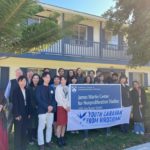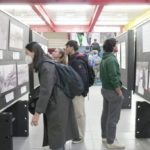Dialogue and Interaction Event with Young Diplomats of Canada
On Thursday, November 16, 2023, a workshop was held on the theme “What Are the Elements that Make the World Less Peaceful?” and the program participants and Canadian youths working as Young Diplomats of Canada engaged in dialogue and interaction.
Workshop Overview
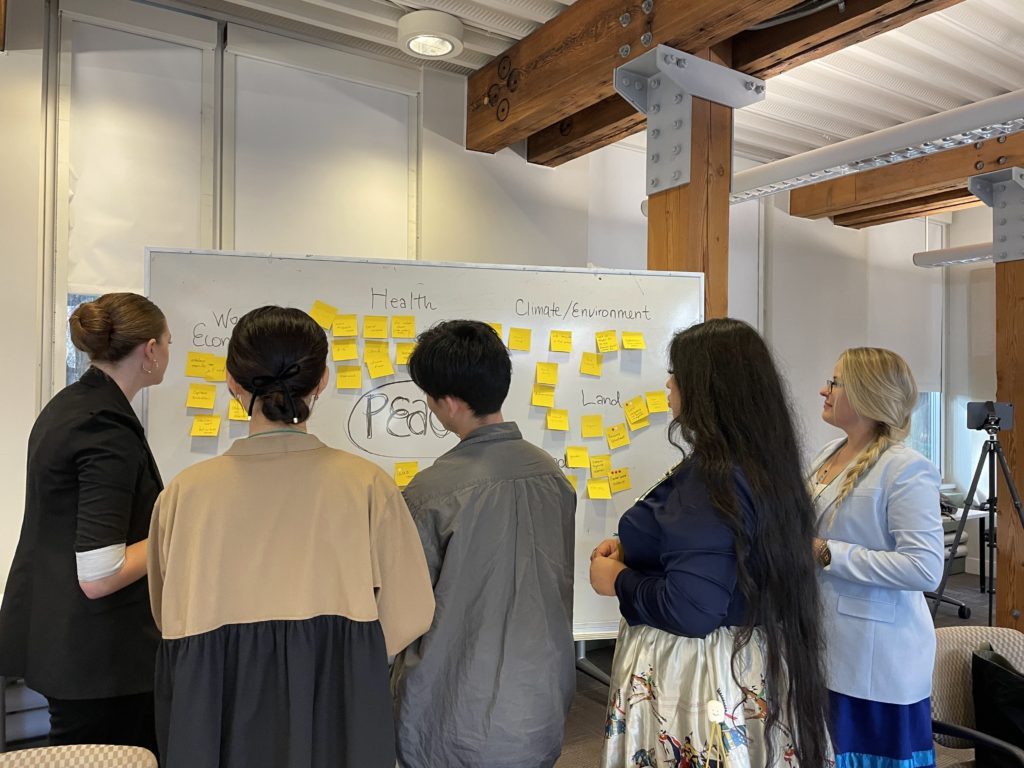
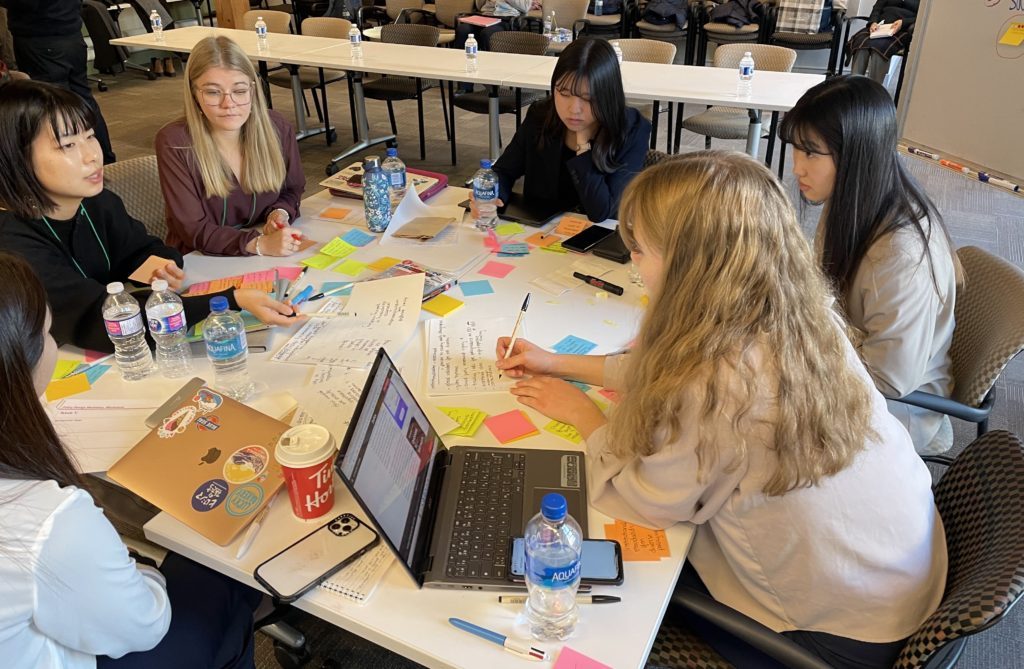
Five Caravan participants and five Canadian youths were divided into two groups, and they identified through group work challenges to be addressed toward making the world more peaceful. Afterwards, they discussed solutions for two issues and gave presentations on the results of the discussion at the end of the workshop.
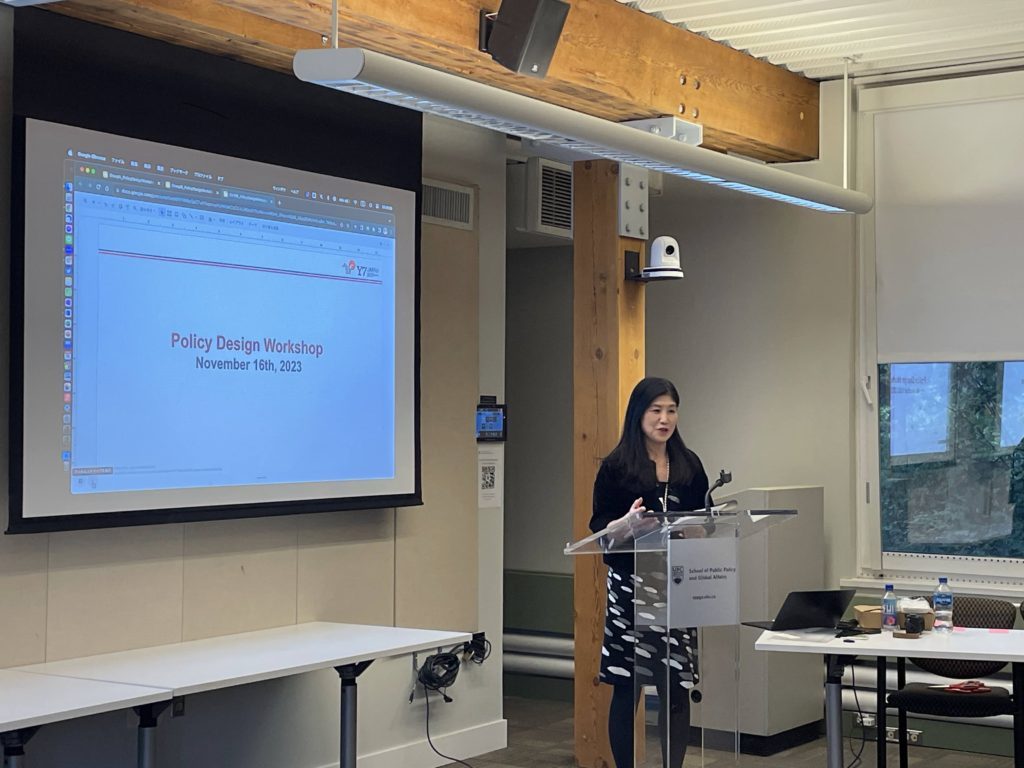
The presentations at the end of the workshop were given with the attendance of Deputy Consul General Satomi Okagaki from the Consulate-General of Japan in Vancouver. She encouraged the workshop participants by commenting: “The discussion today is contributing to realizing a peaceful world. One day, today’s discussion will lead to changes in global policy and, ultimately, a more peaceful world. Please maintain your interest and commitment to international affairs and global issues.”
Overview of the Result Presentations
Group A
Issue 1 Climate-based human displacement
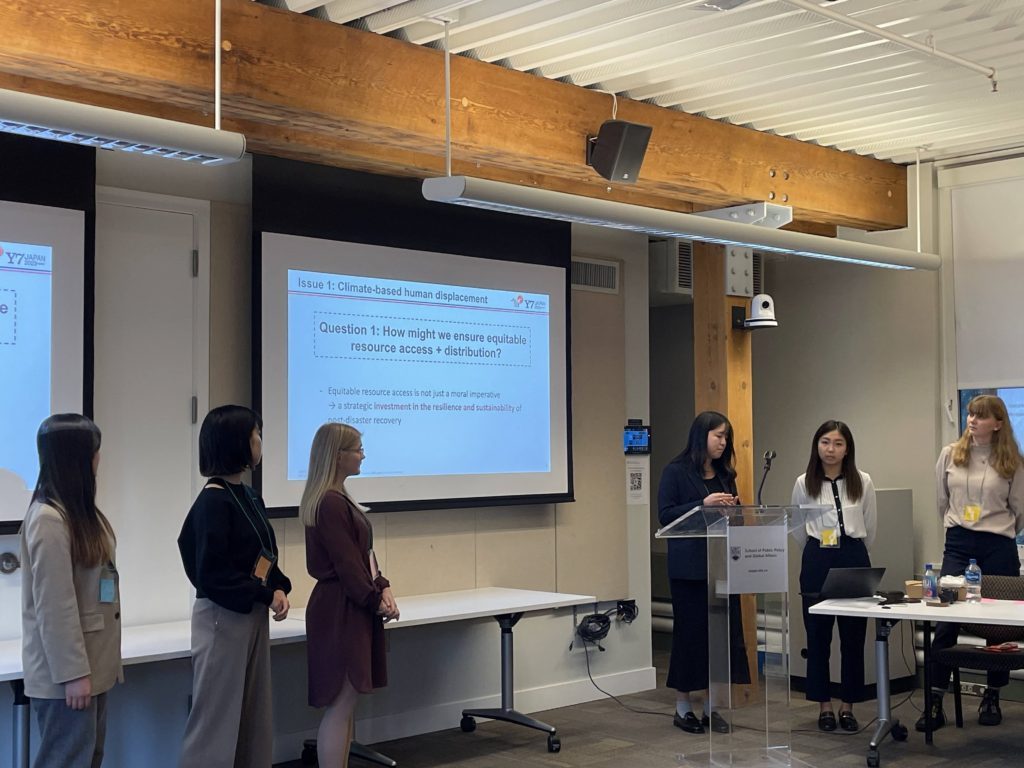
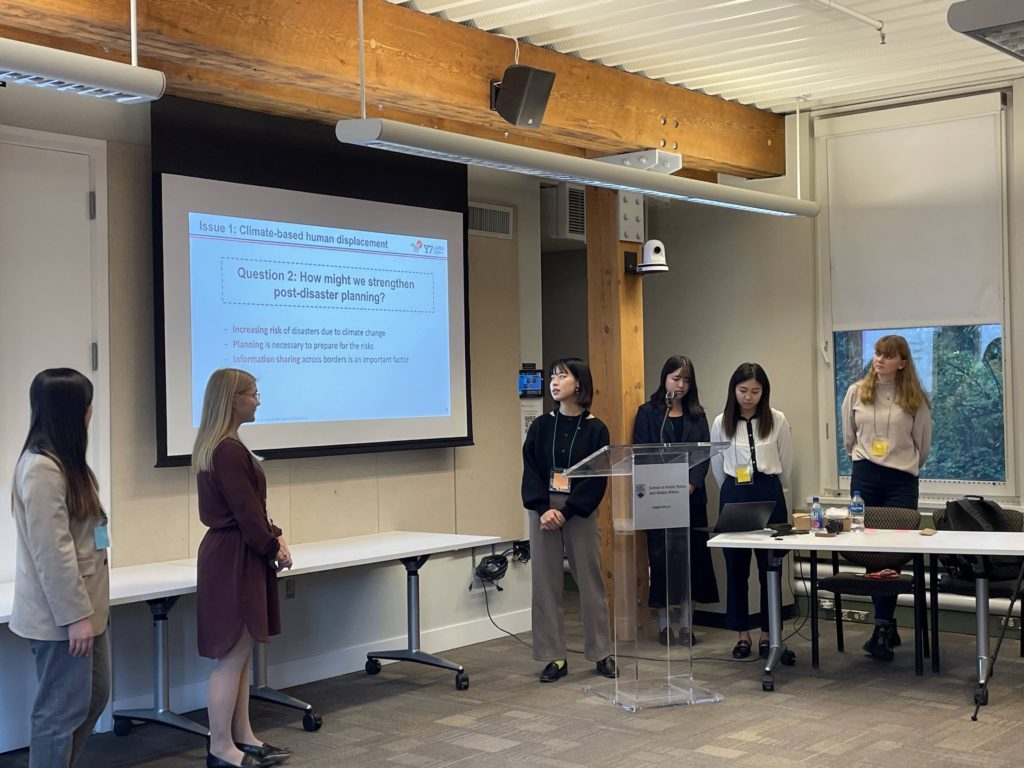
How might we ensure equitable resource access and distribution?
- Equitable resource access and distribution are important elements in a recovery process to foster a resilient and united community. By sharing data after a disaster, eliminating technical and language barriers, and building a system that allows local communities to participate in decision-making, we will strive to achieve a more coordinated and efficient recovery process.
- A resilient and sustainable recovery requires strategic investment, as equitable resource access and distribution are key elements.
How might we strengthen post-disaster planning?
- As the risk of disasters due to climate change increases, we need to prepare plans and share information across borders by formulating mutual action plans, forming regional partnerships across borders, sharing knowledge and data, and regularly reviewing plans that cover disaster prevention.
- In addition, we need to provide education for students to acquire common knowledge on climate change, etc., consider emergency financing and insurance, and ensure prompt recovery in the event of a disaster.
Issue 2 Lack of diversity in policy-making
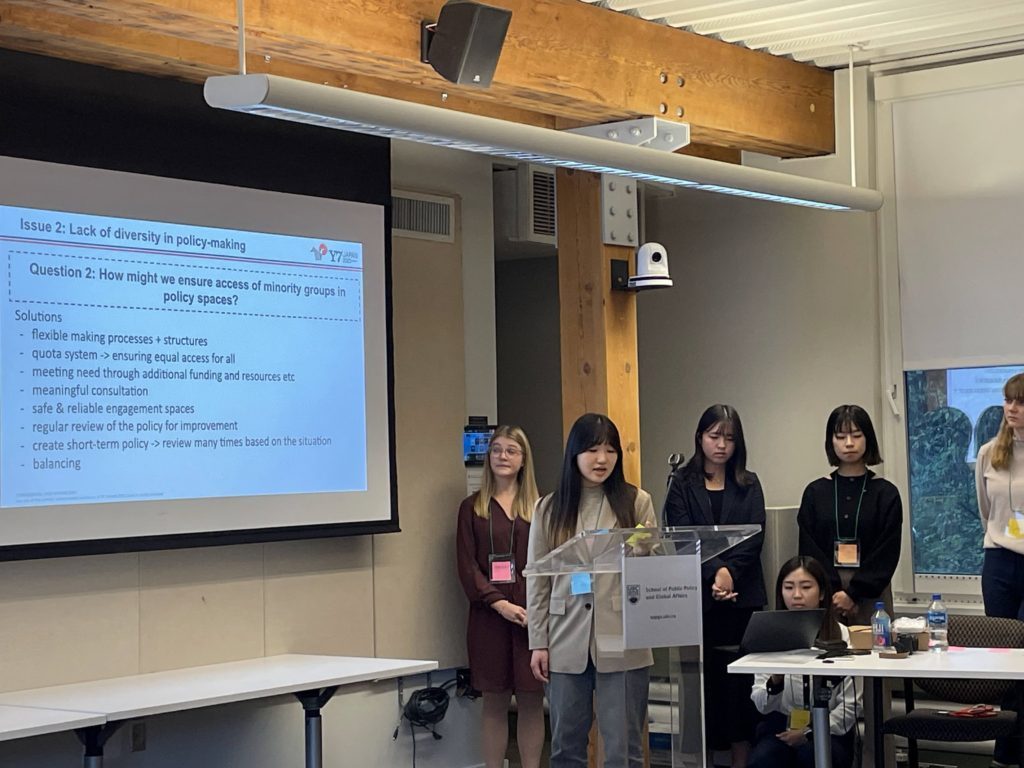
How might we institutionalize and assess diversity in policy-making processes?
(International level)
- Elaborate global indicators that are flexible and actionnable.
- Faciliate information and experience sharing between countires and make data accessible.
- Build frameworks of justice and libeeration in Equity,Diversity,and Inclusion(EDI).
(National level)
- Introduce quota sysytems
- Provide training and education for policy-makers on Equity, Dicersity and Inclusion(EDI) or Gender-based Analysis(GBA).
- Consult minority groups at all stages of policy-making.
- Entrust a third-party agency to overview the assessment of diversity in policy-making.
How might we ensure access of minority groups in policy spaces?
- Introduce a quota systems to ensure equal access for all.
- Create short-term policy and review them many times based on the situation.
Group B
Issue 1 Racial and Gender based violence
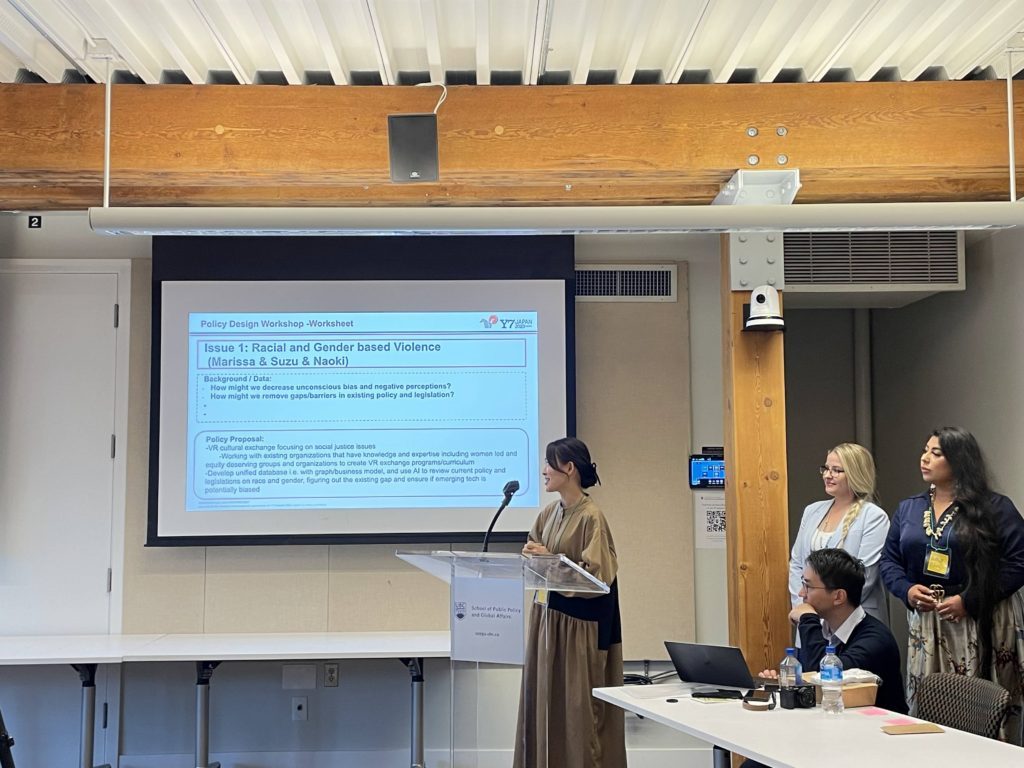
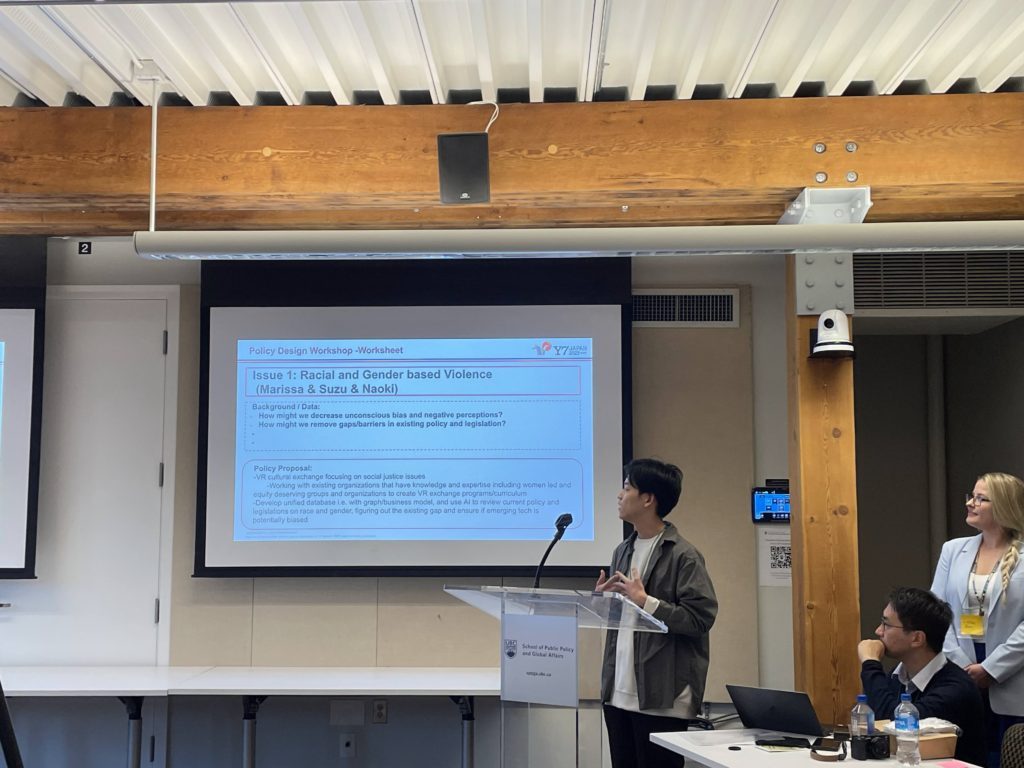
Hpw might we decrease unconscious bias and negative perceptions?
- Create VR cultral exchanges focusing on socal justice issues.
How might we remove gaps/barriers in existing policy and legislation?
- Develop unified database i.e. with graph/business model, and use AI to review current policy and legislations on race and gender, figuring out the existing gap and ensure if emerging tech is potentially biased
Issue 2 Land and resource governance
How might we incorporate consensus and conset in land and resource governance?
- Increase legislation, policy implementations, and existing frameworks regarding consensus and consent in relation to land and resource governance.
How might we increase capacity and transform systems?
- Increase capacity and transform systems by improving legislation, implementing policy recommendations and implement roles and or departments to accelerate capacity building and systems changes.
4. Voices of Caravan Participants
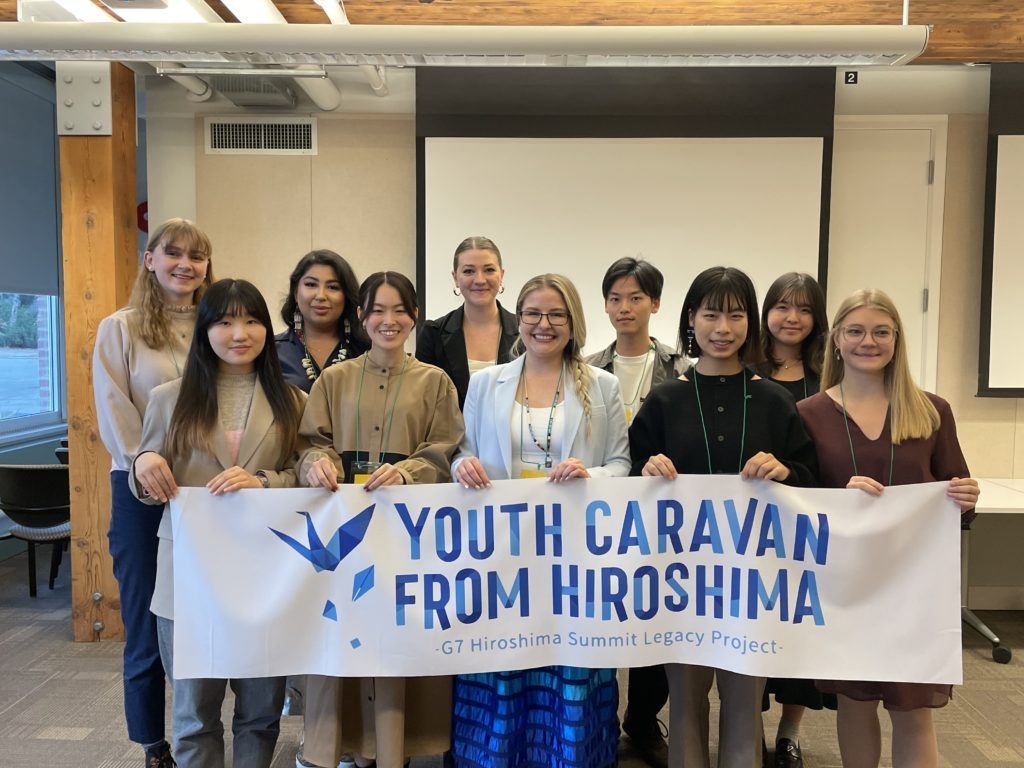
- The discussion focused on “discrimination based on race and gender” and “use of land and resources,” enabling us to have a discussion toward solving structural violence.
- I was very impressed by the way Canadian students see “indigenous peoples.” I felt that their definition of “peace” is different from that of Japan.
- What struck me was that the phrase “nuclear weapon” never came up in the discussion on “peace.”
- It seemed that Canadians saw the issue of indigenous peoples as a top priority, and I felt that this was because each country had its own priorities in education.
Tags associated with this article



-150x150.jpg)

